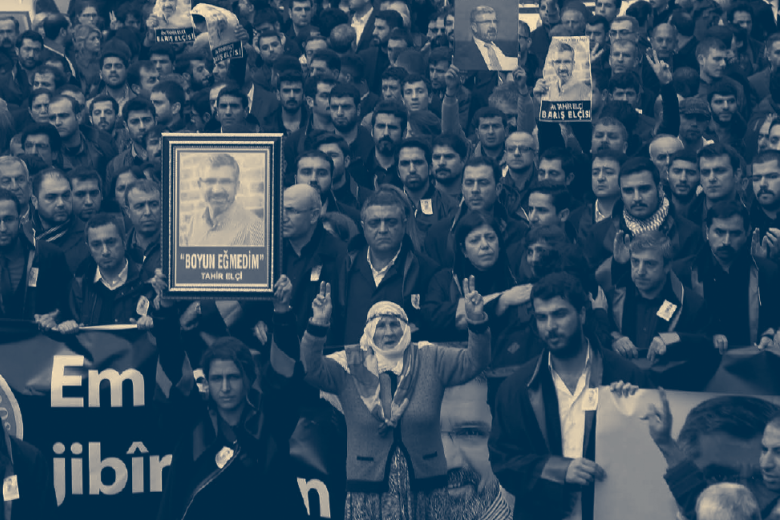The EU’s race to the bottom on asylum seekers’ rights
Throughout the EU, the rights of asylum seekers come under pressure. Overdue policy changes remain stuck in negotiations because of lacking political will. It is up to the European Commission to step up and protect the fundamental rights of asylum seekers.
In August, a slumbering crisis erupted in full force. The Dutch central reception facility for asylum seekers was full; consequentially, hundreds of asylum seekers were forced to sleep on the grass outside the reception facility, many without tents. The circumstances were so dreadful that Doctors without Borders, for the first time in history, deployed a mission in the Netherlands. The organisation compared the circumstances to Camp Moria on the Greek island of Lesbos, infamous for its abysmal conditions. The solution presented by the Dutch government, in which the right to family reunification is temporarily suspended, is contrary to the EU’s Family Reunification Directive. Moreover, the solution has proven ineffective as more than a month later people are still left to sleep on the street and risks to the health of asylum seekers still exist. The crisis that unfolded in the Netherlands is symptomatic of the EU’s failure to effectively address the arrival of migrants and safeguard their fundamental rights.
In the podcast Betrouwbare Bronnen, Sammy Mahdi, the former Belgian state secretary for asylum and migration expressed his fear that in the foreseeable future the EU’s asylum and migration policy would resemble the policy of Hungary, its most restrictive Member State. The Hungarian prime minister Orbán has declared his country a “migration-free zone”. Hungary has furthermore carried out pushbacks of migrants, which are illegal under international and European law. There are also cases in which Hungary has failed to provide food and shelter to migrants.
One of the main contributing factors to the pressure on asylum seekers’ rights throughout the EU lies in the way that its asylum policies are crafted. These policies have proven to be inadequate for years. At the heart of this failure sits the Dublin Regulation which was updated to its current form in 2013.
With a few exceptions, the Regulation prescribes that the Member State in which an asylum seeker is first registered becomes responsible for examining the application. When an asylum seeker who is registered in Italy arrives in the Netherlands, he will in principle be returned to Italy to go through the asylum procedure in the Member State of first registration. However, since the ECtHR and the CJEU cases M.S.S. v. Belgium & Greece and N.S. v. Secretary of State for the Home Department respectively, these Dublin transfers to Greece were suspended. Returning someone to the shortcomings in Greece’s asylum procedure and reception facilities could have amounted to human rights violations. Earlier this year, the Dutch Council of State ruled in a similar way with regard to Croatia.
This situation in which ‘Dublin claimants’ are not sent back to the Member State responsible for their application first and foremost forms an important safeguard in the protection of asylum seekers’ rights. However, it also creates a perverse incentive for EU Member States. Cutting back on reception facilities may mean that other Member States can’t return asylum seekers, leading to a lower influx. This, in many Member States, leads to political gain. In the Netherlands, the reception crisis of the last months followed years of government cutbacks in spending on reception facilities.
Within the EU, the political will to deal with the problems around asylum is lacking. The European Commission's new migration and asylum pact includes ideas on mandatory relocation which should lighten the burden that the Member States on the outer borders of the EU carry. However, Member States such as Austria and Hungary have voiced fierce opposition to these plans. The European Commission now has the task to safeguard the rights of asylum seekers.
Europe has the moral duty to take in asylum seekers and to let the procedures and facilities be in line with its human rights obligations. The European Commission portrays itself as ‘Guardian of the Treaties’. Therefore, it should step up to the plate and defend human dignity as well as the right to asylum. Both are enshrined in the EU’s Charter of Fundamental Rights. Now that some of the EU’s core values are being trampled in the reception of asylum seekers, it is up to the Commission to start infringements procedures for violations of EU law. However, the Commission should not stop there and should investigate whether there are options to withhold EU funds from the Member States undermining violating fundamental rights.
The failure of the Dutch government to provide reception facilities is part of a European failure to provide asylum seekers with the reception facilities they have a claim to and that do justice to their human dignity.
If the current system of European asylum rules is to remain, it will only encourage a race to the bottom between Member States because it fosters a decline in reception facilities and procedural rights. The European Commission has a role to uphold European values, especially when they come under pressure. The current crises should mark a turning point and not the beginning of a fall into a bottomless pit.
| More blogs on Law Blogs Maastricht |
-
How many times can the ECtHR turn its head
Thank God for Judge Egidijus Kūris. In ECtHR ruling Ahmet Hüsrev Altan v. Turkey of 13 April, he showed that decontextualized analysis is not inherent to supranational judicial review. Once again saucing up his dissent with Bob Dylan, he asked “how many times can [the ECtHR] turn [its] head and...

-
Part II: time for the Commission to act - Let us not forget about EU fundamental rights
About a year ago, this blog published my contribution “Let us not forget about EU fundamental rights,” which addressed the situation at the EU’s external borders. At the time, the decision of the ECtHR in the case of N.D and N.T v. Spain, was heavily criticised for failing to protect the right to...
